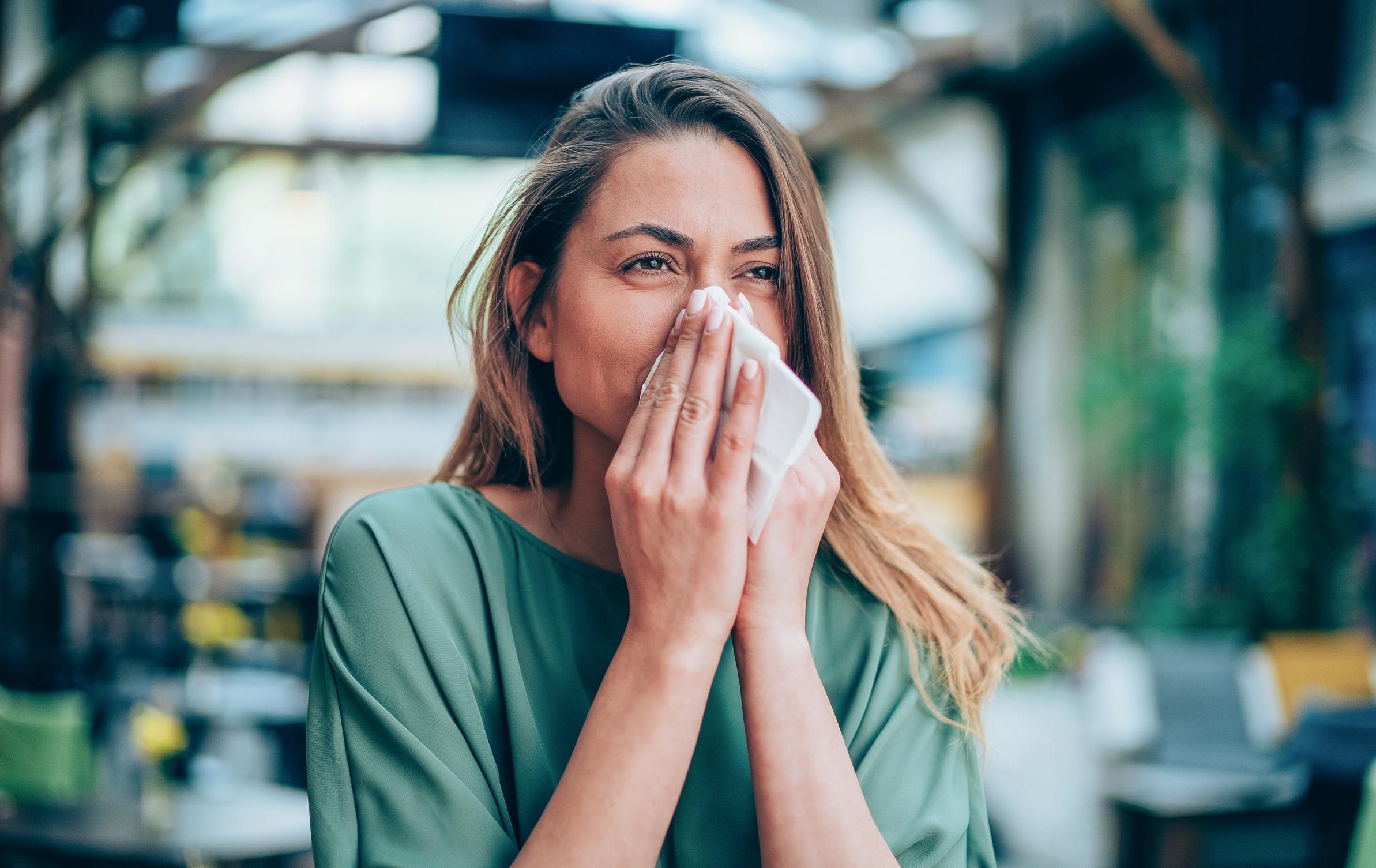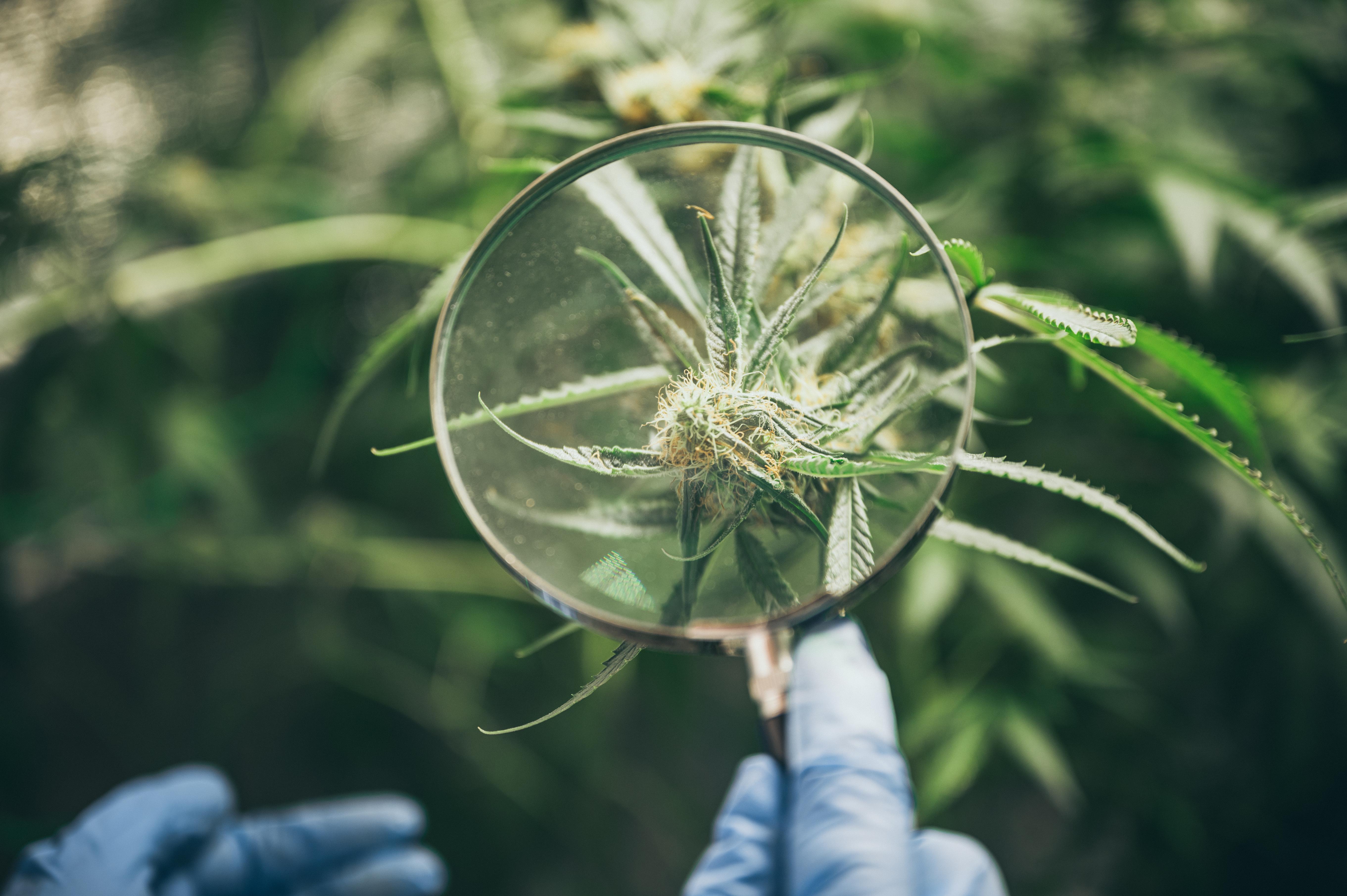
5 minute read
Cannabis Allergies - Relief or Trigger?
In the ever-evolving landscape of health and wellness, cannabis has emerged as a multifaceted plant, celebrated for its therapeutic benefits in managing pain, anxiety, and chronic conditions. Yet, as its use becomes more widespread, questions arise about its impact on allergies. Does cannabis offer relief, or can it trigger allergic reactions? This article delves into the current understanding of cannabis in relation to allergies, offering insights for those navigating its use.
The Allergy Conundrum
Allergies are the immune system's exaggerated response to substances it perceives as harmful, leading to symptoms that range from mild (sneezing, itching) to severe (anaphylaxis). Common allergens include pollen, dust, food, and, for some, components of cannabis.
Cannabis: A Dual-Edged Sword
Cannabis contains a plethora of compounds, including cannabinoids like THC (tetrahydrocannabinol) and CBD (cannabidiol), terpenes, and pollen. These compounds interact with the body's endocannabinoid system, influencing mood, pain, and immune responses.
Relief for Some: A Closer Look at Anti-Inflammatory Benefits
Cannabis's potential to serve as an anti-inflammatory agent, particularly through CBD, holds significant promise for allergy sufferers. CBD's interaction with the body's endocannabinoid system plays a crucial role in modulating immune responses, making it a topic of interest for researchers and those affected by allergic conditions alike.
Mechanisms of Action: CBD exerts its effects by interacting with cannabinoid receptors (CB1 and CB2) found throughout the body. These receptors are part of the endocannabinoid system, which helps regulate inflammation and immune response. By activating these receptors, CBD can help reduce the production of cytokines, which are proteins involved in initiating and sustaining inflammation.
Evidence and Applications: Studies have begun to illuminate CBD's potential benefits in managing conditions exacerbated by inflammation, such as allergic asthma, eczema, and contact dermatitis. For instance, a study published in the Journal of Dermatological Science suggested that CBD could help reduce the inflammation and itch associated with eczema and psoriasis. Another research highlighted CBD's role in reducing airway inflammation in allergic asthma, suggesting its potential as a supplementary treatment.
User Considerations: While the anti-inflammatory properties of cannabis, particularly CBD, are promising, users should approach with caution. Quality and purity of CBD products can vary, making it essential to choose products from reputable sources. Additionally, the interaction of CBD with other medications should be considered, underlining the importance of consulting healthcare professionals before starting any new treatment regimen.

A Trigger for Others: Understanding the Allergenic Potential
While cannabis offers relief to some, it poses allergenic risks to others. The plant's pollen, along with handling and consumption methods, can contribute to allergic reactions, highlighting the need for awareness and precaution.
Sources of Allergens: Cannabis pollen is a primary concern for those with plant pollen allergies, capable of triggering symptoms similar to those caused by other pollen types. Additionally, the smoke from burning cannabis can irritate the respiratory system, exacerbating conditions like allergic rhinitis and asthma. The process of handling cannabis, especially for those involved in cultivation and processing, can also lead to skin contact allergies.
Symptoms and Reactions: Individuals allergic to cannabis may experience a range of symptoms, including skin rashes (contact dermatitis), eye irritation (conjunctivitis), sneezing, coughing, and in rare cases, more severe reactions such as anaphylaxis. The severity of symptoms can vary based on the method of exposure and individual sensitivity.
Preventive Measures and Management: For those at risk of cannabis-related allergies, avoiding exposure is the best preventive measure. This may involve selecting alternative consumption methods (e.g., edibles over smoking) or opting for products with lower allergenic potential. In cases where exposure leads to an allergic reaction, over-the-counter antihistamines and topical corticosteroids can provide symptom relief. However, severe reactions require immediate medical attention.

Navigating Cannabis Use with Allergies
For those considering cannabis as a remedy for allergies or concerned about potential allergic reactions, a cautious approach is advised:
Consult Healthcare Providers: Before integrating cannabis into your wellness routine, especially if you have a history of allergies, consult with a healthcare professional. They can offer guidance based on your health history and current medications.
Opt for Low-Allergenic Forms: If prone to allergies, consider using cannabis products that are less likely to provoke a reaction, such as edibles or oils, rather than smoking or vaping.
Start Small: Begin with low doses to monitor your body's response and identify any adverse reactions.
Be Aware of Cross-Reactivity: Some individuals allergic to certain plants and foods might experience cross-reactivity with cannabis. This phenomenon occurs when proteins in cannabis resemble those in other allergens, prompting an allergic response.
The Path Forward
As research into cannabis and its effects on health continues to grow, so too will our understanding of its relationship with allergies. Both anecdotal experiences and scientific studies are crucial in shaping guidelines for safe consumption. For many, cannabis offers a promising alternative to traditional allergy treatments, yet it's essential to tread carefully, acknowledging its potential as both a remedy and a trigger.
In conclusion, the interplay between cannabis and allergies embodies the complexity of the human body's interaction with natural compounds. By fostering an informed dialogue between patients, healthcare providers, and researchers, the journey towards harnessing cannabis's therapeutic potential, while minimizing its risks, becomes a collaborative and dynamic endeavor. For those navigating the waters of cannabis use, awareness and education are key to finding relief and avoiding discomfort.










